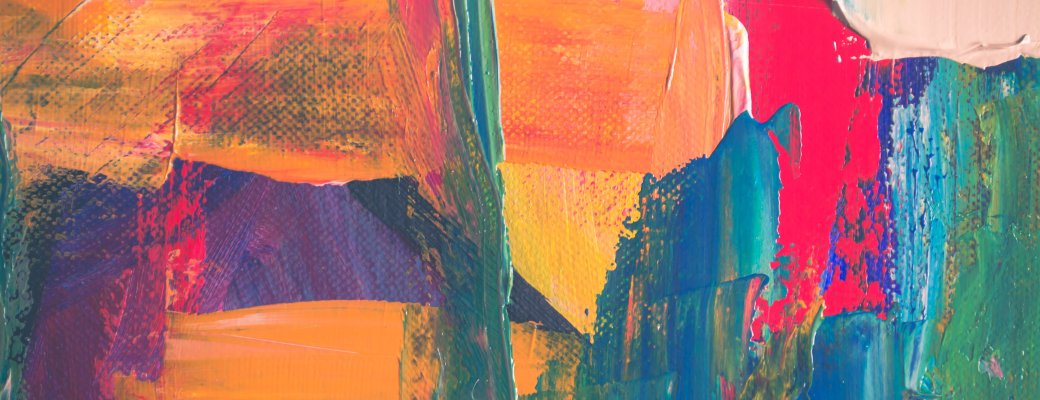
When ink is transferred to paper to form letters, symbols or an image, we are talking about printing. In addition to relief printing and planographic printing, there are a number of other printing techniques such as intaglio and screen printing. Most printing processes today involve digital printing. When we talk about color printing, we can make a distinction between two types: full color (four-color printing) and working with PMS colors.
Full color printing is done with inks in four colors. With these four colors, Cyan (blue), Magenta (red/pink), Yellow and key (black), every possible color can be mixed. For printing designs with more than two or three colors, for example photos, advertising print, ..., full color is the ideal option.
If you look at a page that contains something printed in full color with a magnifying glass, you can see how the colors are made up of tiny dots in blue, red/pink, yellow and black.
PMS stands for Pantone Matching System: Pantone is the name of the company that publishes the color codes and Matching System refers to the system of exactly determining (mixing) the color. Pantone publishes a color chart. Each unique color is given its own number. This is important for logos and colors of a corporate identity that must always look exactly the same. The background can also provide specific effects. In that case a code is added to the number for coated, uncoated or matte, for example.
If printing is to be done in two colors, for example green and red, you choose from the range which colors you want, record the numbers and afterwards, you can get the same color quality printing again, at any printer.
It is not recommended to judge colors on your monitor. The color settings of each monitor are different, so each monitor will display the color veins. If you view a photo or an image on two screens next to each other, chances are you will see a difference in color. If you choose a color from a PMS range, you can be sure that the color you choose will be reflected in your printing.